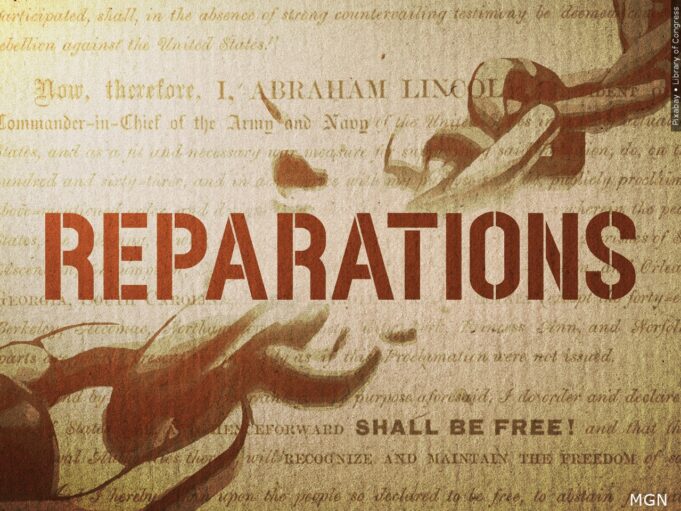ATLANTA—Reparations have become a trending topic on social media. The hashtag has over 250 million views on TikTok, almost 300,000 posts on Instagram, and has trended on X (formerly Twitter) multiple times in recent years. Despite interest rising on the topic particularly amongst Black people in America, H.R. 40, a bill to establish the Commission to Study and Develop Reparation Proposals for African Americans, has languished in Congress for 34 years.
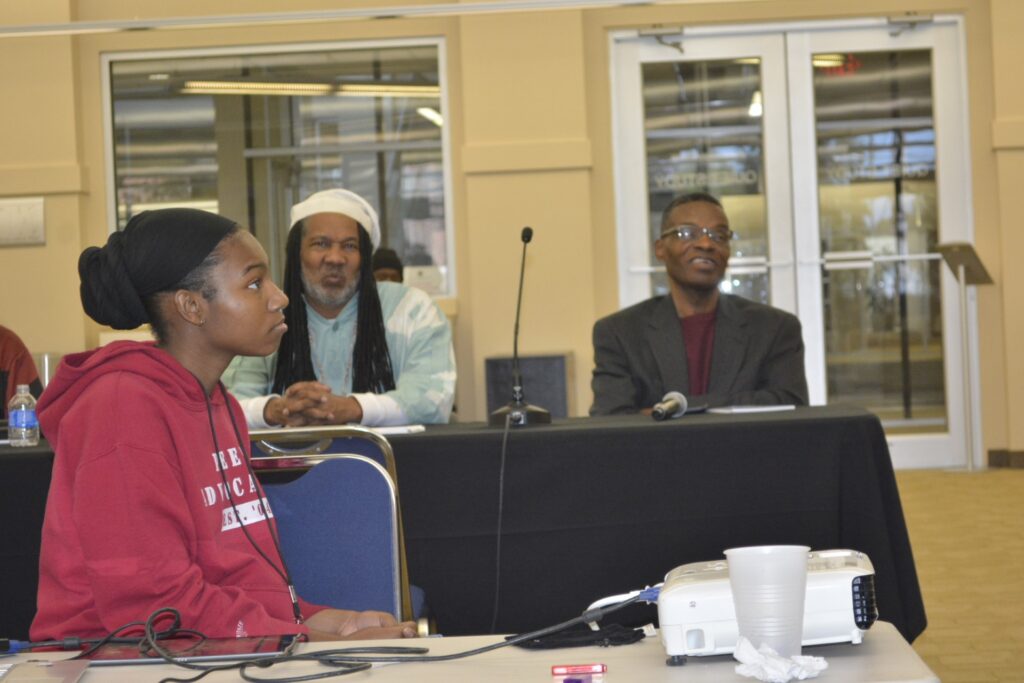
Yet, organizers within the reparations movement foresee reparations becoming a reality in the very near future, if the right steps are implemented today.
Between 75-90 people from 30 different organizations gathered at the Atlanta University Center and virtually via Zoom for the third annual Reparations N’daba/Summit, which took place Nov. 2-4. The summit was hosted by the National Reparations Institute, co-founded by Reginald Muhammad, a professor at Clark Atlanta University, and Michael Muhammad.
“There’s a competition, who has the reparations answer. Which is the actual reparations we should have? And I think it’s a little more complicated than that,” Rev. Mark Thompson, a life member of the National Coalition of Blacks for Reparations in America (N’COBRA) and host of the “Make it Plain” podcast, said to The Final Call. “I think that what this N’daba does is allow us to talk about all of these ideas. And nobody’s wrong, but it gives us an opportunity to hear what other people are saying and figure out that there’s more than one path.”
The National Reparations Institute is advocating for the implementation of “The National Reparations Declaration,” a 78-page document that defines who owes Black people in America, why they owe, and how much they owe, at the federal, state and local levels. The summit’s purpose was to build on four long-term objectives:
- consolidating/uniting various voices and organizations within the existing movement;
- organizers controlling their own narrative;
- helping educate and organize for complete reparations nationwide;
- applying the collective culture model to secure complete reparations
“At the end of the day, we must have a blueprint,” Reginald Muhammad said during the opening program. “Pleading, protesting, picketing, prayer and breakfast are not going to secure reparations for the masses of our people.” He emphasized that reparations are not just about a check, but land ownership has to be in the equation.
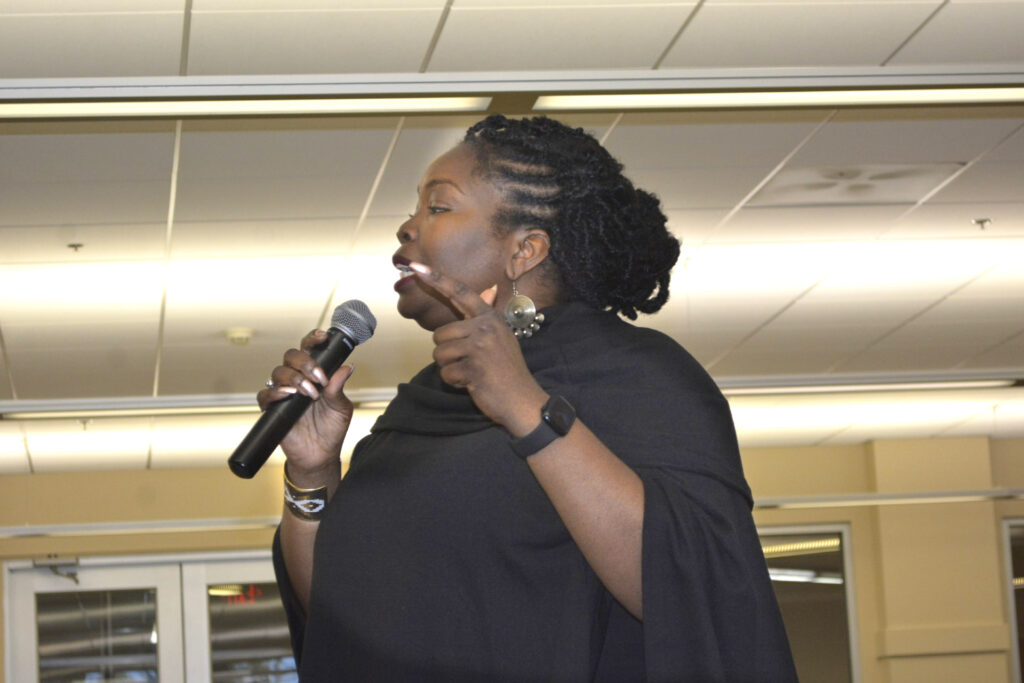
The Honorable Elijah Muhammad, the Eternal Leader of the Nation of Islam, advocated for land ownership. In Point No. 4 of “What The Muslims Want,” published in the book “Message to the Blackman in America” and on the inside back page of every Final Call newspaper, the Honorable Elijah Muhammad writes, “We want our people in America whose parents or grandparents were descendants from slaves, to be allowed to establish a separate state or territory of their own—either on this continent or elsewhere.
We believe that our former slave masters are obligated to provide such land and that the area must be fertile and minerally rich. We believe that our former slave masters are obligated to maintain and supply our needs in this separate territory for the next 20 to 25 years–until we are able to produce and supply our own needs.”
Messenger Muhammad continues, “Since we cannot get along with them in peace and equality, after giving them 400 years of our sweat and blood and receiving in return some of the worst treatment human beings have ever experienced, we believe our contributions to this land and the suffering forced upon us by White America, justifies our demand for complete separation in a state or territory of our own.”
Youth involvement
The reparations summit kicked off with a student panel. They discussed whether or not they will see reparations in this lifetime, what is owed to Black people in America, if reparations have a chance at passing in Congress, and steps the current generation of young people can take to secure reparations.
The panelists, consisting of two current college students and two recent college graduates, were split down the middle on whether they would see reparations in this lifetime. Still, they spoke on the importance of continuing the work. They described reparations as a multi-step plan for restitution, starting with economics and expanding outward to include mental health, abolition of the prison-industrial complex, closing the wealth gap, financial literacy and land.
None of the panelists had faith that reparations could pass in Congress. They advocated for Black people to fight the government on both ends, Democrat and Republican, and organize into a third party to force the issue to the table. They also advised young people to use social media to spread awareness on reparations, for Black people to teach reparations in their homes and within their families and friendships, and to make the topic more attractive through creative aspects through movies and music.
Alexandra King, a singer and a 2018 graduate of Florida A&M University, served on the student panel. She attended her first reparations meeting in May and has made efforts to learn more. She stressed the importance of spreading awareness about reparations and the movement while it’s fresh.
“Brainstorm and figure out how you can touch different people, get the message out, get the book in more hands, explain what it is, spread the awareness of the movement and move immediately,” she said to The Final Call.
Many of the summit’s speakers acknowledged the importance of getting more young people involved in the reparations movement.
“We have to go after the young specifically because if we do not, we won’t have a movement. We need to teach young people what reparations really is,” Michael Muhammad said. “The fact of the matter is, we have let the enemy teach our people that reparations can’t happen. So, it is on us to go after young people, alone, because they are the driving force, and they will force the elders to move.”
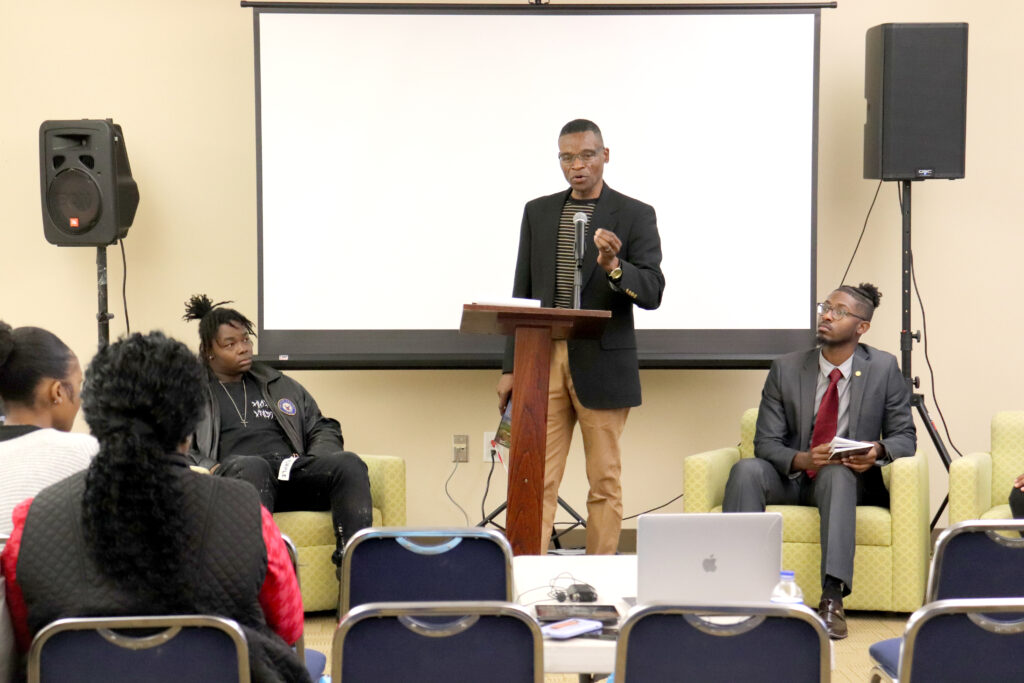
Complete reparations
The National Reparations Institute defines “complete reparations” as “the process by which a nation of people is provided with the means to repair and restore their condition, achieve complete decolonization, and make themselves whole through the ability to self-govern, self-sustain and self-defend, with their own independent land mass, economy, education, culture, and high civilization.”
The institute aims to unite the reparations movement through the “collective culture model.” The model includes activists, existing reparations organizations, other organizations, Black leaders, students, and youth feeding into the institute, along with the annual gathering, research and recommendations and five select committees—education and culture, economics and investments, public and mental health, state and land acquisition and public policy and legislation. The goal is for the different components to work together to give to the U.S. government, corporations and nonprofit organizations current research to help support legislation towards reparations.
The institute identified four areas of restitution: land, forced free labor of Black people from 1555 to 1865, five centuries of denial, inequality, neglect and murder of Black people and closing the Black-White wealth gap in America. Through those areas and the work of Michael Muhammad, the institute came up with a minimum figure of $83 trillion owed to Black people in America. It also identified 12 states that could be considered for reparations: Alabama, Arkansas, Georgia, Illinois, Kentucky, Louisiana, Michigan, Mississippi, North Carolina, South Carolina, Tennessee and Virginia.
Rev. Thompson, who has been in the reparations movement for over 30 years, commended Reginald Muhammad and Michael Muhammad for putting a dollar figure on reparations.
“That’s not an easy thing to do. Because to be truthful, they owe us everything. If you could write ‘The United States of America’ on a check and just sign it over to us,” he said. To quantify it gives a jumping-off point, he added.
Summit sessions
Summit sessions included “The Reparations Movement Must Include Self-Care,” “Student/Youth Participation is Essential for Complete Reparations,” “Our International and National Movement for Justice,” “Complete Reparations is Generational Wealth,” “Complete Reparations in Education” and “The G.L.A.S.S. Model to Achieve Reparations.”
Anana Harris Parris of SisterCARE Alliance urged the great leaders and thinkers within the reparations movement to develop a strategy around addressing their critical needs daily.
“That strategic approach to addressing your needs starts with one question: what do I need?” she said. “The ability to answer that question is the definition of revolutionary freedom around self-care.”
“Giving people the time to drum up what they need, what their organizations need, what their communities need, what their households need, what they need, giving them the time and the space is a functional grace,” she added.
Dr. Rosie Milligan of Professional Publishing House spoke on the importance of Black people moving into the financial arena and leaving something of substance behind for their children. She advised attendees to develop a plan for generational wealth and described debt as the number one enemy. “How can (your dollar) bounce if you don’t own anything?” she questioned. “Until we own our own businesses, we will stay in a ditch.”
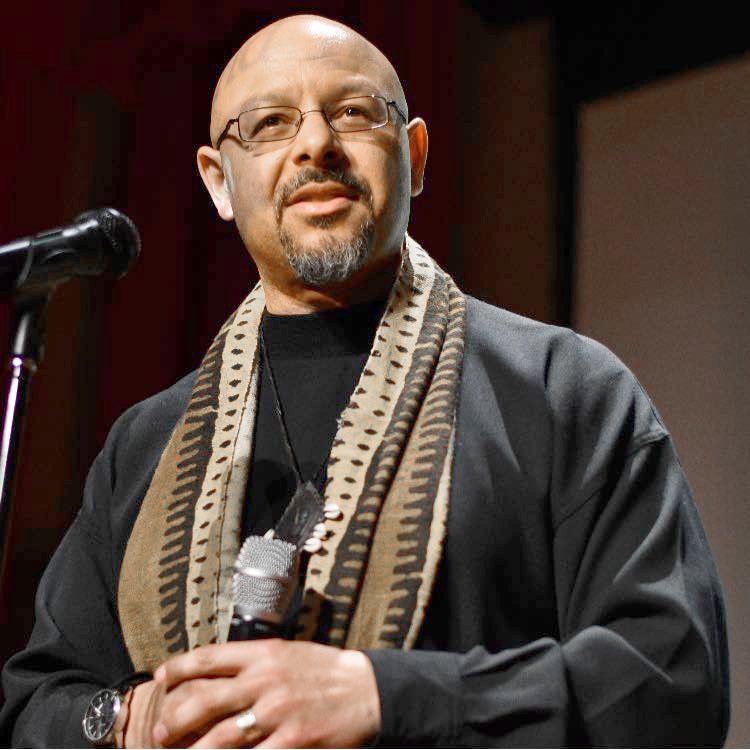
Photo: Facebook
Dr. Chike Akua, a professor of educational leadership at Clark Atlanta University, argued that education would be one of the best places to start dispensing reparations.
He listed nine areas where reparations in the educational field can be spent including: Black people building and maintaining their own independent schools; parents who desire to send their children to an independent Black school or to homeschool their children; teachers, leaders, scholars and community members develop curriculum resources, culturally authentic standards and assessments;
Ensuring that public schools infuse African and African American history and culture across the curriculum; training new generations of Black teachers, counselors and administrators in African-centered and culturally responsive teaching methods, materials, content, leadership and therapeutic approaches;
The abolishment of student loans and student loan debt; free college tuition and room and board for Black people from the undergraduate level to the doctorate level; hiring faculty at HBCUs and improving and expanding infrastructure at HBCUs and lastly, continuing research to recur and reconstruct the legacy and tradition of Africa and African American educational excellence and continuing research about reparations and its implementation to hold the government accountable.
Dr. Raymond Winbush, director of the Institute for Urban Research and a research professor at Morgan State University, presented “five sectors that must cooperate in the struggle for reparations”: grassroots organizations, legislators, attorneys, scholars, and students. Dr. Winbush listed the current movers and shakers in today’s reparations movement in the five areas.
The summit concluded with a dinner and awards program at a Black-owned restaurant near the Atlanta University Center.
Attorney Legrand Clegg II delivered the program’s keynote address and emphasized the importance of Black people maximizing their power, boycotting White businesses and corporations, and buying Black.
Dr. Jewel Crawford, a specialist in family medicine, Dr. Akinyele Umoja, a scholar, activist and professor of Africana studies at Georgia State University, Dr. Ife Williams, a political science professor at Delaware Community College, and Dr. Winbush were awarded the “Kilele Award.” “Kilele” is a Swahili word meaning “peak” or “apex.”
“One of the things that concerns me about us and reparations is we’re going to need a united front to accomplish (it),” Dr. Umoja said. “The folks who are serious, N’COBRA, we have to all be at the table together and plan and strategize.”
“We need to have a movement that not only is intellectual, but we got to really feel the pain of our people, the trauma,” he further shared. “One of the ways we can address that is to recognize the trauma in ourselves and to use that as a force to fight for our freedom.”
The vision
Organizers with the National Reparations Institute are polling people around the country to help inform their research. Summit participants overwhelmingly voted “yes” on their agreement with the definition of “complete reparations,” their support of the complete reparations campaign and movement for Blacks in America, and their belief that complete reparations are the best solution to correct more than 400 years of enslavement, injustice, trauma and murder.
Organizers also encouraged participants to join one of the select committees to present the latest research and recommendations that would be published and disseminated via research papers. The institute also plans to launch a podcast titled, “The Reparations Report.” For more information, visit www.nationalreparationsinstitute.org.












